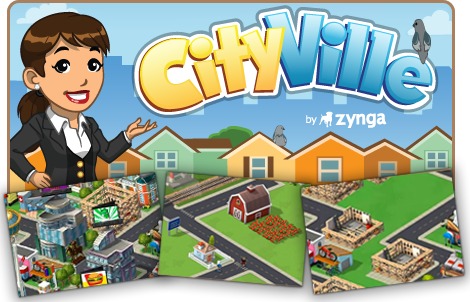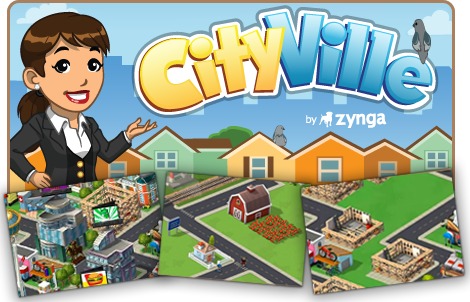 The world’s population center has shifted from the countryside to the cities, with more than 50 percent of humans living in urban areas for the first time in history. In the U.S., the number living in cities and suburbs is 80 percent. So maybe it’s no surprise that CityVille, the new game from Zynga, has replaced FarmVille — one of the company’s previous huge successes — as the most popular Facebook app.
The world’s population center has shifted from the countryside to the cities, with more than 50 percent of humans living in urban areas for the first time in history. In the U.S., the number living in cities and suburbs is 80 percent. So maybe it’s no surprise that CityVille, the new game from Zynga, has replaced FarmVille — one of the company’s previous huge successes — as the most popular Facebook app.
According to Technorati, nearly 16.8 million users play CityVille each day.
The game starts you out on a rural piece of land and lets you “grow your community into a model city.” According to a press video from the company, “You can build a big urban city with skyscrapers, you can enjoy building a smaller community that grows its own food and that is really around making the quality of life that you’d like to have in your own life.”
Myself, I like to have my quality of life happen in … life. But obviously Zynga isn’t exactly worried about people like me — they’re counting on raking in big dollars from people who pay to “improve” their cities, the same way FarmVille users pay to “improve” their farms.
And as with FarmVille, the game has been denounced as a time-suck that can get some folks into serious financial straits. Matthew Zuras wrote on Switched before the launch of CityVille:
‘FarmVille’ users are still clicking away real dollars and cents through the recession, and, potentially, millions more will head to ‘CityVille’ to build their own virtual small businesses and gleaming Shangri Las, while the real Main Street will continue to deteriorate.
I’m curious to know if any of you have tried CityVille, and if so, whether there are any actual planning principles at work. I’m skeptical, especially because one self-described “addict” writes, “There are no consequences in CityVille and there is no strategy.” I was glad to see they at least showed sidewalks and pedestrians in the brief video I watched — that’s more than many American cities have to show for themselves.
But I confess, a part of me wishes that instead of feverishly “improving” their virtual cities in the game, people would work on improving the cities they actually live in.
Anyone out there a fan of the game and want to weigh in?
(Via Urban Land Institute.)
UPDATE: Turns out Kristen Jeffers has reviewed the game from an urbanist perspective at her blog The Black Urbanist. Thanks to @Intersection911 for the link.



